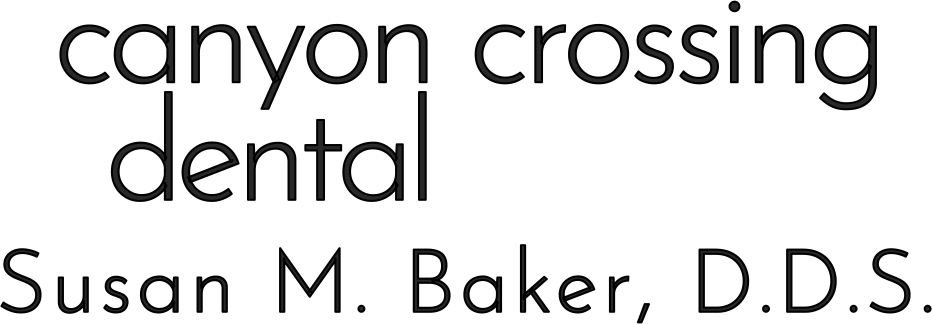Don’t press the “snooze button” on treatment of suspected sleep apnea
The dentist’s office may not seem like the obvious place to treat chronic snoring and sleep apnea. However, it makes sense to seek out a professional experienced in diagnosing and managing sleep dentistry, like our very own Dr. Susan Baker at Canyon Crossing Dental. Dr. Baker has helped individuals from throughout the St. George, Utah, area struggling with sleep-disordered breathing (SDBs). Furthermore, she has supported a harmonious household by alleviating the stress and restoring the quality of sleep for all family members. After all, when patients habitually snore, it can take a toll on family members’ sleep quality.
Additionally, snoring may not be an innocuous condition; very loud, chronic snoring may be symptomatic of obstructive sleep apnea (OSA), the most common type of apnea.
Don’t snooze on potential signs of sleep apnea
Apnea arises when the tissues at the back of the throat relax during sleep — so much so that they block the airway. Affected individuals’ bodies recognize that they can’t breathe. In the act of self-preservation, patients are awakened suddenly in a panic and with a snort or gasp. This scary process can occur dozens of times, every hour on the hour. Patients may not realize they have a problem unless their spouse or partner brings choking, snorting, gasping, or other behaviors to their attention. Or people may suspect there is a problem when, despite “sleeping” the recommended seven to nine hours, they still feel poorly rested and fatigued.
Snoring may be of “primary” concern or “secondary” to many conditions that are characterized by airway blockages. Snoring generally occurs as air is forced through narrow passages. Anatomical features, bulky tissues in the throat, and poor muscle tone may be to blame. Furthermore, primary snorers usually produce a characteristic harsh or hoarse snore. It is also not uncommon for some people to snore intermittently, such as when their allergies or sinuses act up. Snoring occasionally is really not a cause for concern; however, chronic and very disruptive snoring can take a significant toll on relationships and may be indicative of underlying, serious medical conditions like OSA.
Hassle-free treatment that works
Canyon Crossing Dental is adept at treating the oral structures that surround and are connected to the teeth and gums. With such comprehensive knowledge in hand, we may recommend oral appliance therapy as an alternative to invasive surgical intervention or bulky CPAP therapy. Any surgery has its risks. And CPAP, while effective, takes some getting used to. Some patients just never “take” to wearing a mask during sleep.
Oral appliances, such as “snoreguards” or mandibular advancement devices, have a high patient compliance rate. It is easy to see why! Such devices are:
- Easy to wear, simply slip into the mouth like a retainer, sportsguard, or nightguard
- Custom-fit for superior comfort
- Low maintenance
- Portable, fit into a small storage case
- Prevent serious complications, ranging from an increased risk of road accidents (due to fatigue) to cardiac events (due to the stress that is placed on the organs from untreated OSA)
- Restores restful, regenerative sleep
- Relieves symptoms that negatively affect patients’ quality of life, from chronic migraines to irritability
These devices largely reposition the jaws. A healthier oral posture is supported; lax tissues are kept out of the way and prevented from blocking the airway.
To find out more, call (435) 344-4445. Sleep soundly through the night. This life-changing process starts at Canyon Crossing Dental.
We look forward to hearing from you!

